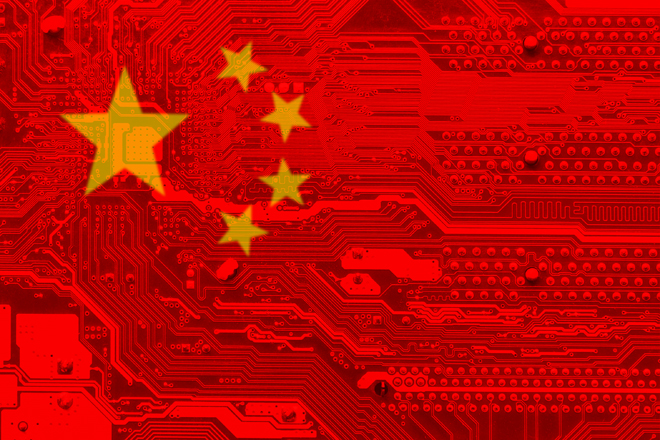Subscribe
Sign up for timely perspectives delivered to your inbox.
Daniel Graña, Emerging Market Equity Portfolio Manager, believes that the beginning of the end of the post-Cold War order and the rise of an assertive China have enormous investment implications.
The world of mostly free movement of capital, people, goods and technology is ending. Faith in global trade being more than a zero-sum game has been undermined. The seemingly inevitable “Balkanisation” (fragmentation) of end markets1 is likely to lead to localisation, which is inherently less efficient than a globalised world. Many developed market companies may lose access to the Chinese sphere of influence and/or may be required to create parallel supply chains. I expect that the road to a ‘bipolar world’ will be fraught with volatility and unexpected turns.
When China was brought into the World Trade Organization (WTO) under former US President Bill Clinton, there was a presumption that economic development, a growing middle class and interactions with the outside world, that were all part of globalisation, would fundamentally change China and eventually allow democracy to flourish. After all, the great success stories of South Korea and Taiwan and, even the lesser ones like Chile and Mexico, all passed through economic change first under some version of dictatorship before inevitably moving toward democracy. The WTO was effectively a Trojan horse. It was inconceivable to many that the path to economic development would not eventually establish the conditions for democracy and a general acceptance of the global norms of Pax Americana2.
That notion was wrong.
On the economic side, it could be argued that China did not follow the letter nor the spirit of their WTO ascension agreement. Policymakers protected state-owned enterprises. Foreign intellectual property was allegedly forcibly transferred or stolen. Plentiful leverage created the conditions for near zero cost of capital, which helped many Chinese companies gain global market share. China created non-tariff barriers (for example the Great Chinese Firewall) as part of their industrial policy to produce national champions in critical areas. China had seemingly found a different recipe to greatness.

And democracy never came. Recently, Xi Jinping’s anti-corruption drive and pivot to sustainable economic development (lower growth with less environmental damage) are wildly popular in China. The Chinese Communist Party’s (CCP’s) grip on power has probably never been so strong.
Moreover, America’s failed adventures in the Middle East, disastrous role in the Global Financial Crisis and painful COVID-19 pandemic experience have emboldened Chinese policymakers to believe the US is not only in relative decline but also in absolute decline. The timing for a separate sphere of influence is auspicious from China’s point of view.
Chinese policymakers believed a trade and tech war with the US was inevitable but they had expected such a conflict in a decade or two. The US political system’s failure to address technology’s and globalisation’s losers accelerated that time frame by creating the conditions to elect Trump. The “America First” doctrine believes trade deficits are signs of abuse, and even allies were taking advantage of the US.
After relatively quick deals with South Korea, Canada and Mexico (in our view, burning a lot of goodwill in the process), the Trump administration moved on to China. However, the complexity of the Sino-American relationship and Xi Jinping’s immovable core philosophy of state-sponsored development prevented a broad trade deal. The Phase 1 agreement was supposed to be an appetiser ahead of the more robust Phase 2 agreement, which never came.

Trump’s political calculus then shifted. With falling poll numbers due to what many deem to be the mishandling of the pandemic and the ensuing economic damage, Trump the dealmaker is now the China hawk. The trade war has morphed into a broad-based push for decoupling of the entire relationship from technology, capital and information. There will be no tolerance of economic espionage (Houston consulate closure), dual purpose technology (Huawei attack) or surveillance of American digital information (goodbye TikTok). A foreign war is a useful distraction for the electorate ahead of elections, and the broadsides fired at China are certainly the beginnings of an unconventional cold war.
Why has China seemingly under-reacted to the many provocations of the Trump administration? The inevitable conclusions are China still depends on US technology, expects US multinationals with businesses in China to lobby the US government to soften the attacks and hopes Democratic presidential candidate Joe Biden can prevail in November.
Should we expect a change in tone or direction after the US elections? Regardless of whether Trump is re-elected or Biden is declared the victor, I believe the die is cast. Biden would likely be more multilateralist in his approach with China but neither man is likely to change the endgame of Sino-US relations, only the speed. These countries have incompatible systems with diverging interests and natural flash points. The US and China today are less like Great Britain and the US in the late 19th century where similar systems decided to share the world, and more like the US and the USSR after World War 2 when conflict was inevitable after their common Nazi enemy was defeated.
There is a difference between portfolio managers (PMs) who invest in publicly-listed securities and corporates who invest in factories, supply chains and technology. PMs can easily change their minds and sell their exposures but investors of hard assets and builders of businesses cannot do so as easily. Faced with greater uncertainty about the direction of Sino-US relations, even if there is a reprieve in the war, I believe that investors of long-term capital must seriously consider diversifying their supply chains away from China. We as investors must ask our companies the extent of the required capital expenditures, their timeframe and the operating cost differences of such a move. In some cases, Vietnam, Mexico and even the US (a Taiwan Semiconductor Manufacturing Co. (TSMC) semiconductor plant, for example) can be beneficiaries but government support may be necessary to smooth the transition. Supply chain diversification without government support is clearly less efficient than the alternative.
Why wouldn’t China find a Chinese replacement for Cisco routers, CRM enterprise software, QCOM chips and so forth? Where there is a good replacement, localise. Smaller end markets have enormous implications for the speed of innovation (less R&D given smaller sales base), margins (less sales to dilute costs) and sales growth. If returns on capital and sales growth rates are likely to be affected, should not valuations be affected too? Balkanisation of end markets will be painful for many but could be quite powerful for those gaining share from exiting US companies.
Should President Xi’s patience wear thin, why not step up the retaliation? Boeing, Apple, Starbucks, Ford and other US multinational corporations have significant exposures in China, a country that some may argue has no rule of law but rule of party. In such situations, emerging market governments can surprise with a tax audit, supply chain investigation or market abuse study.
Hong Kong (HK) is China’s financial window to the world and could potentially replace the US capital markets for Chinese companies seeking to list abroad. Shanghai-HK and Shenzhen-HK Connect programmes are crucial in bringing mainland Chinese capital to HK. The implementation of the new National Security Law and the resulting US response must be watched. China cannot be so cavalier about leaving US capital markets if HK cannot play a constructive role.
Another flash point between the US and China is Taiwan. The CCP probably would be toppled if there were a property market crash on the mainland or if China ‘lost’ Taiwan. And yet, Intel has effectively surrendered advanced node semiconductor manufacturing to Taiwan’s TSMC. Moreover, China is counting on Taiwan to replace some of the technology widgets coming from the US. Taiwan has clearly become extremely important geopolitically. Watch this space. For example, will the US provide more explicit defence guarantees to Taiwan in exchange for changing the Taiwanese law, which currently prohibits the most advanced node of manufacturing to be ‘exported’ abroad?
This list of investment implications is not all-encompassing. However, the situation may evolve in ways none of us have contemplated.
While planned trade talks between the US and China have been postponed, we believe that staying close to these developing issues, and how they may affect our investment decisions, is key to active investment management.
1End market: where the end user, for whom the product has been created, is located. In case of a business-related product, where the sale takes place to the company that will use the product in its own operations.
2Pax Americana: a state of relative international peace regarded as overseen by the US.